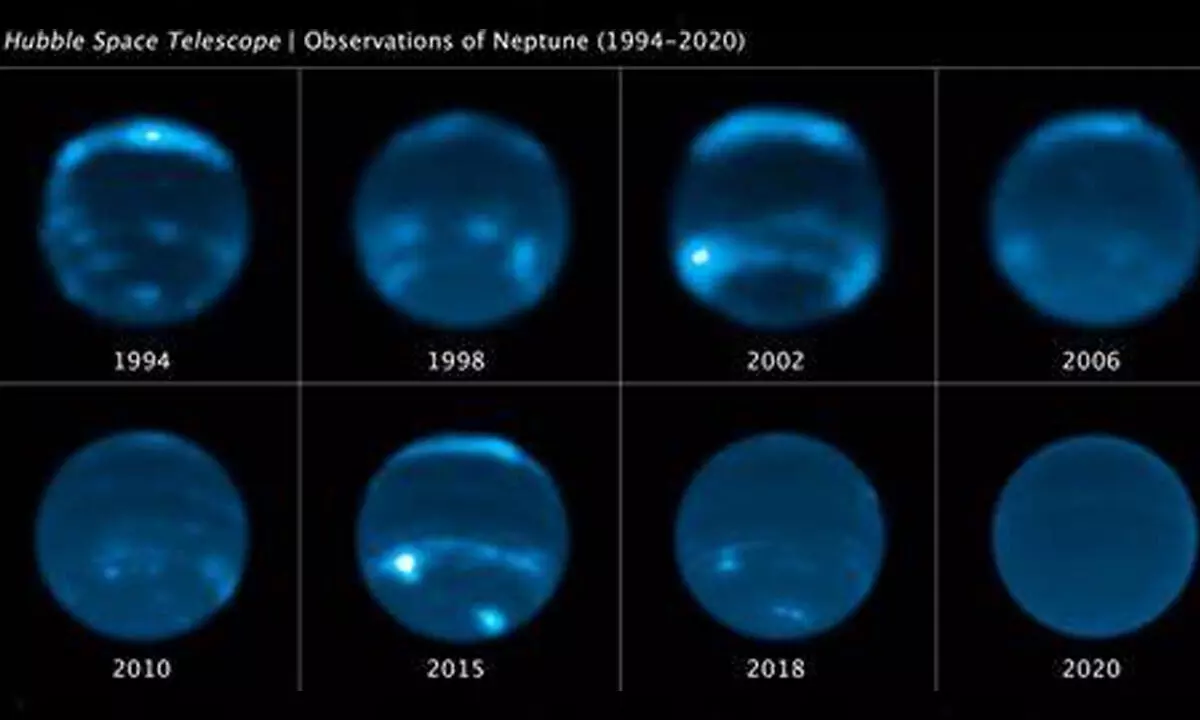Sun's activity is behind Neptune vanishing clouds

Astronomers have uncovered a link between Neptune's disappearing clouds and the increasing activity of the Sun as it approaches its solar cycle, expected to occur in 2025.
New Delhi: Astronomers have uncovered a link between Neptune's disappearing clouds and the increasing activity of the Sun as it approaches its solar cycle, expected to occur in 2025.
The Sun is currently in an active phase of its 11-year solar weather cycle, known as Solar Cycle 25. The solar cycle is the period when the Sun's magnetic field flips every 11 years as it becomes more tangled like a ball of yarn. This is evident in the increasing number of sunspots and increasing solar flare activity.
As the cycle progresses, the Sun's tempestuous behaviour builds to a maximum, until the magnetic field breaks down and reverses polarity. Then the Sun settles back down to a minimum, only to start another cycle.
The link between Neptune and solar activity is surprising to planetary scientists because Neptune is the farthest major planet in the solar system. It receives sunlight with about 0.1 per cent of the intensity Earth receives.
Yet Neptune's global cloudy weather seems to be driven by solar activity, and not the planet's four seasons, which each last approximately 40 years.
The team led by University of California (UC) Berkeley discovered the connection between the solar cycle and Neptune's cloudy weather pattern by looking at 2.5 cycles of cloud activity recorded over the 29-year span of Neptunian observations.
During this time, the planet's reflectivity increased in 2002 then dimmed in 2007. Neptune became bright again in 2015, then darkened in 2020 to the lowest level ever observed, which is when most of the clouds went away.
At present, the cloud coverage seen on Neptune is extremely low, with the exception of some clouds hovering over the giant planet's south pole, the team wrote in the paper published in the journal Icarus.

















